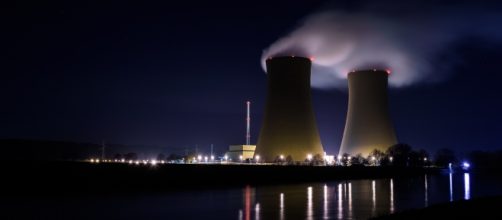For the third straight year, global carbon dioxide (CO2) emissions have stalled, fueling the Trump administration’s desire to exit the U.N.’s Paris accord, a scheme to retard global warming. The CO2 estimates come from the International Energy Agency (IEA), which showed the energy and industrial sectors released 32.1 gigatonnes of emissions from 2014 to 2016, even as the global economy grew by 3.1 percent.
The IEA said the use of clean-burning natural gas, energy-efficiency improvements, further reliance on renewables, and fixes to the "structural economy" have all been factors in the static global carbon budget.
The U.S. was the biggest beneficiary: emissions fell three percent in just one year despite the economy growing 1.6 percent.
Reasons for the drop include the switch from coal to natural gas, market forces, and improvements in renewable technologies. Global CO2 levels have risen about 3 to 4 parts per million (ppm) a year despite global Co2 Emissions flatlining for the past three years. The latest data from NOAA shows CO2 levels went from 401.43 ppm in 2015 to 404.70 ppm in 2016, an increase of 3.27 ppm.
.@DailyMail "Black gold rush in the USA by #fracking has slashed the country's energy bills and created 1 mio #jobs" https://t.co/JINDX2bDjQ
— Ulrike Schopp (@onlineschopp) August 8, 2016
Market forces working
China, which relies heavily on coal, also saw their emissions drop one percent even as their economy expanded nearly seven percent.
Compare that with the U.S., where coal demand fell 11 percent in 2016. The dramatic drop in coal use is largely due to Obama-era rules designed to put the coal industry out of business. Another is the abundance of natural gas derived from hydraulic fracturing displacing coal.
The IEA’s report has some people wondering why we have an accord that will cost countries trillions of dollars while “emissions are slowing due to market forces, technology driven efficiency, and of course—fracking.” That’s according to Climate Depot’s editor Marc Morano, who told the Washington Times that climate activists need to be “intellectually honest” and acknowledge the importance of fracking.
Enviros should ‘be singing the praises of fracking” – Global CO2 emissions flat for 3rd year — Fuels… https://t.co/iPbBxDBDSL #Eco #Green
— The Anti Al Gore (@AGW_IS_A_HOAX) March 21, 2017
Exiting the accord
After President Obama ratified the accord last September, then-candidate Donald Trump threatened to withdraw the country from the agreement and cut off climate change funding to the United Nations.
As such, his recent budget reflected those priorities. This new report supports Trump’s contention the Paris accord was created to divert wealth from richer nations to poorer ones.
The Paris climate accord asks signatories to reduce CO2 emissions and curb global temperatures from rising 1.5 degrees Celsius, with a goal of two degrees by 2100. A recent NCAR study showed the world would need to stop emitting CO2 by the year 2085 and manually remove the colorless, odorless trace gas from the atmosphere to reach the accord’s targets.
What will it really take to cap warming at 2 degrees? Likely a lot of negative emissions: https://t.co/rPd6Duhbte
— NCAR & UCAR Science (@AtmosNews) July 18, 2016
Proponents call the accord a good beginning and say three years of stable emissions prove it is working, despite going into effect Nov. 4, 2016. Morano also says that continued fracking and the use of natural gas will put the Paris accord “out of business” and negate the need for onerous EPA regulations.

